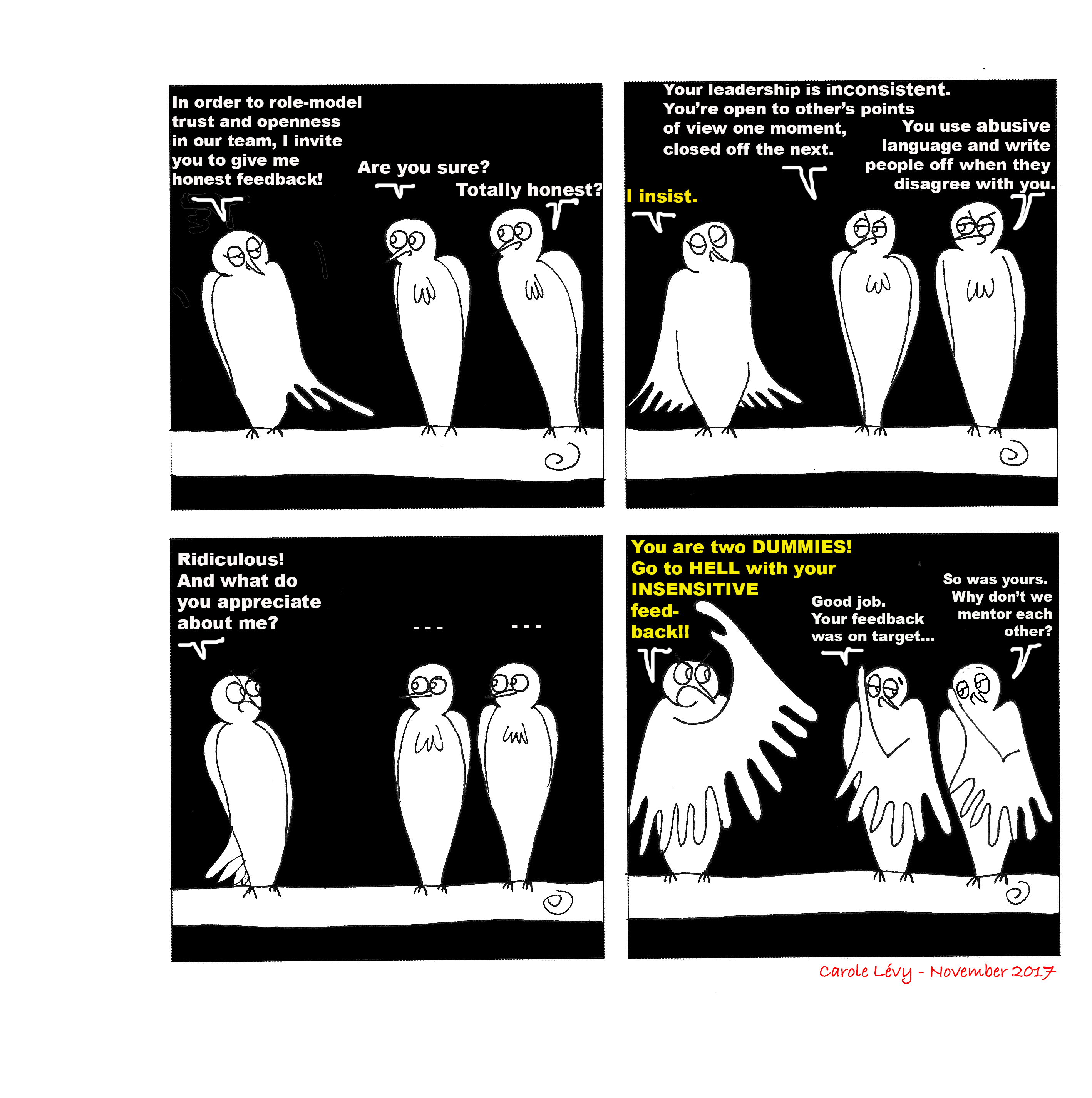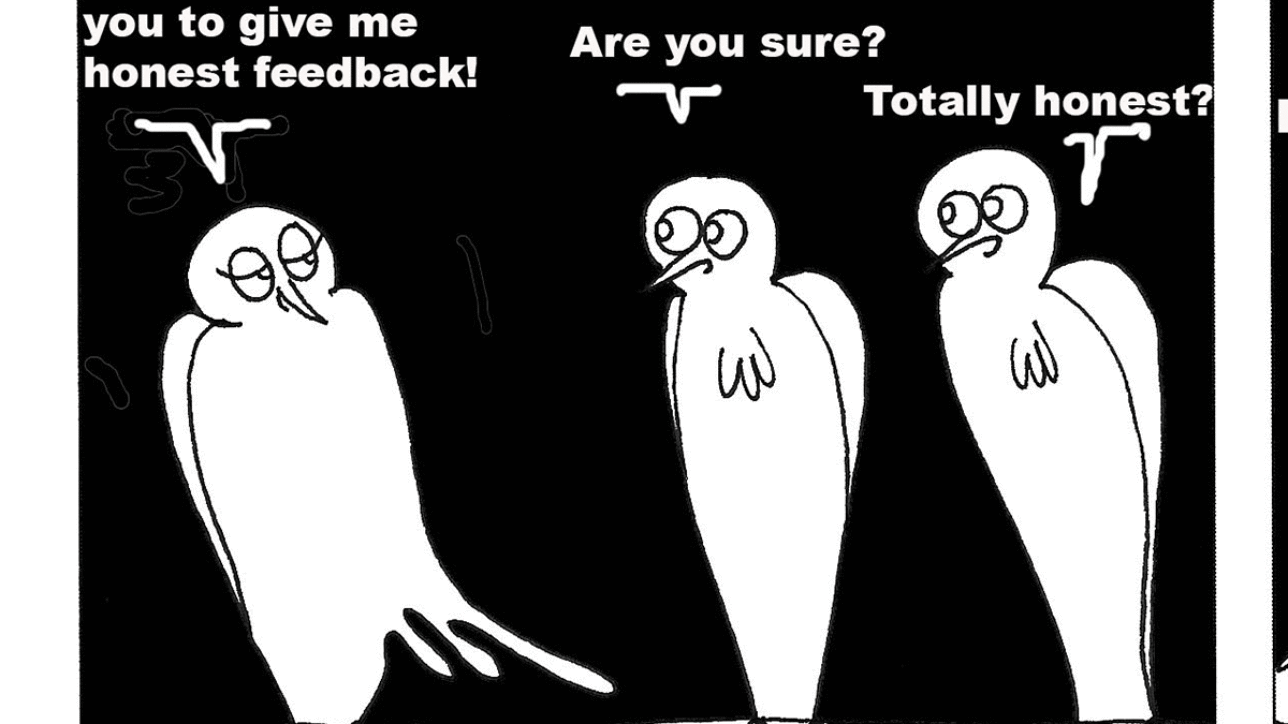
As a leader, if you solicit feedback from others, you have to be clear about what you want.
Are you 100% willing to hear authentic feedback from your team, even if it’s critical?
If you solicit feedback and people around you are not used to it, at first, they might be awkward, confused, too nice, too harsh or even wrong.
Are you ready to override the imperfect ways feedback will be delivered to you and still search for truthful nuggets?
You can always ask team members to clarify their feedback. You can express your emotion, your sadness or even surprise because of the gap between your intention and the apparent impact on others, but you shouldn’t argue or worse, discount what has been said.
If you are even slightly defensive, you can erode the safety you are attempting to establish.
Being able to receive feedback is a monastic rule in Buddhism. I heard Pema Chodron describing how it’s easy to react with a conditioned response, feeling shamed or like “a bad person”, if you are talking loudly during a silent period and someone just said “Shh…” The basic guideline in giving feedback, she says, is that basic goodness speaks to basic goodness. If you care about the person, the feedback comes from a place of good- heartedness. In other words, you don’t have to dehumanize the person in order to give them feedback.
Sometimes, just asking for permission to give feedback is enough to show our respect.
Some leaders have chosen to establish an organizational rule of giving and receiving feedback as a means to develop their own potential as well as the potential of their organization. In doing so, they renounce the usual privilege of their rank, accepting feedback from their subordinates as well as asking everyone to do the same at all levels of the organization.
It is a bold, even radical stand. It is part of the movement of being a Deliberately Developmental Organization (DDO). The concept is explained in An Everyone Culture, written by Bob Kegan and Lisa Lahey. I mentioned their work previously in my blog Sensitivity to feedback.
A DDO culture is not the easy path. It seems to require an incredibly clear commitment to vulnerability, learning and accountability. It’s full of trial and error. But in DDOs, failing equals learning, and ultimately leads to growth and success.
In my opinion, the DDO model could be a promising XXI century bearer of healthy work places where friendship and respect – humanization – could flourish.
Reflective questions: Is feedback a regular practice in your organization and at home? Do you solicit feedback? If not, what prevents you from doing it?







